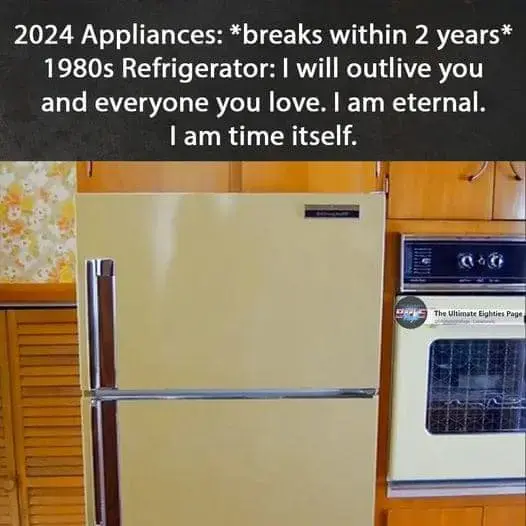So, I learned something interesting about the technology underpinning refrigerators once. In my case, it was an old HVAC AC unit.
We had it checked once, and the tech said the until was really old, but seemed fine. It turns out the old units lasted forever, because they were made with heavy duty materials - thick steel, etc. The downside was that the efficiencies were really low. He said it was a trade-off: you get higher efficiencies by using thinner metal with better thermal conductivity, but you sacrifice durability. Basically, it's a trade-off between durability and efficiency. Whatever built-in obsolescence you get is on top of an essential limitation in physics: it takes more energy to transfer heat between thick metal and thin, and thin just doesn't last as long.
I'm not a materials scientist, so I'm probably paraphrasing him wrong and misinterpreting it, but since his advice was to not replace it until it died, which could be another decade, unless I had an urgent desire to get a higher efficiency unit, I figured he wasn't BSing me and took him at his word.
I absolutely believe in planned obsolescence, but I also believe that there are some fundamental laws of physics contributing to lifespan of appliances. If you want high efficiency (in some types of appliances, such as refrigerators), you're generally going to be working with more flimsy materials which are more prone to breaking down.
I suspect that the higher efficiency don't make up for the irreparability and subsequent waste of replacing appliances more often, but Energy Star contributed to requiring some of that, so not all of the blame can be laid on manufacturers.
